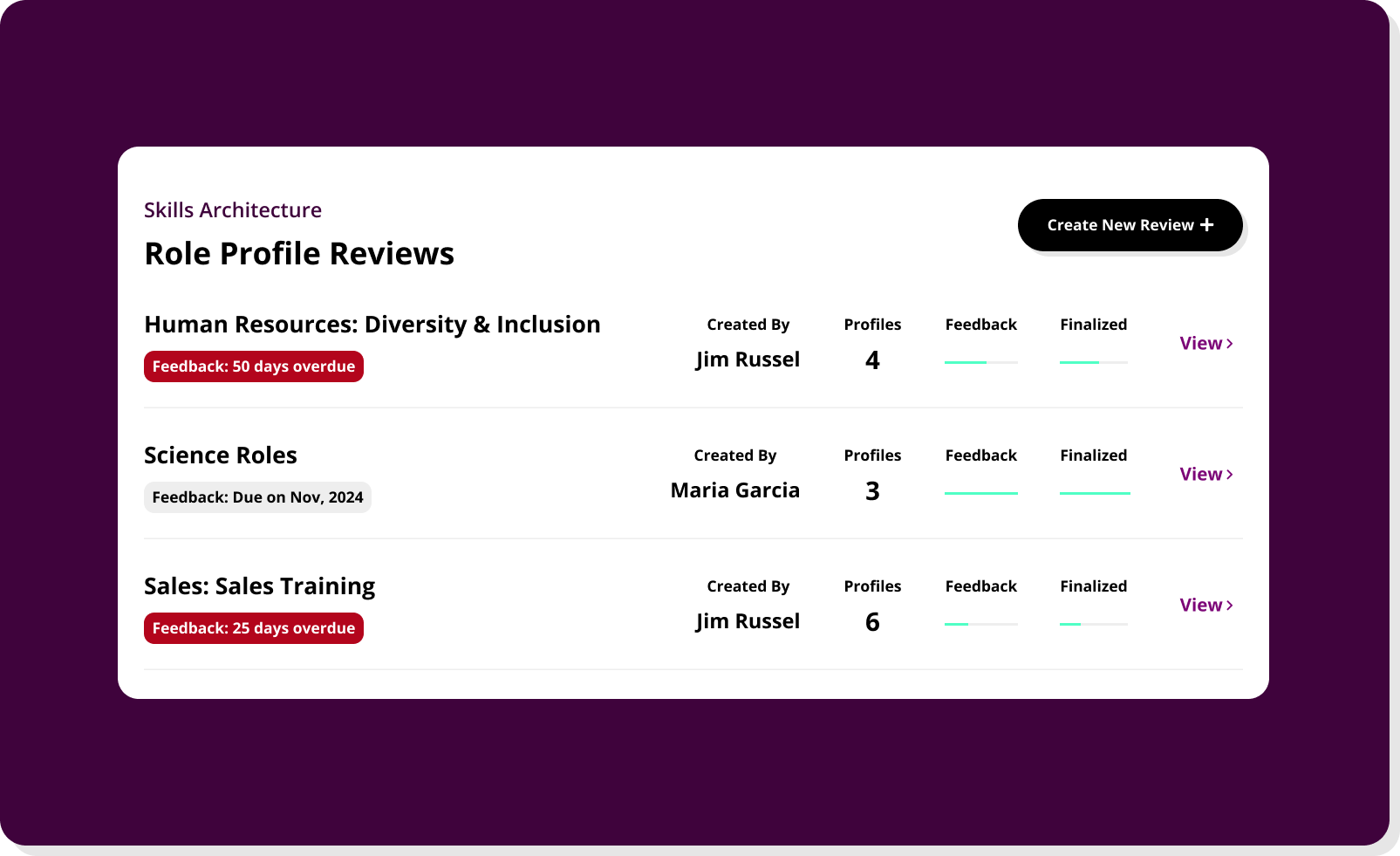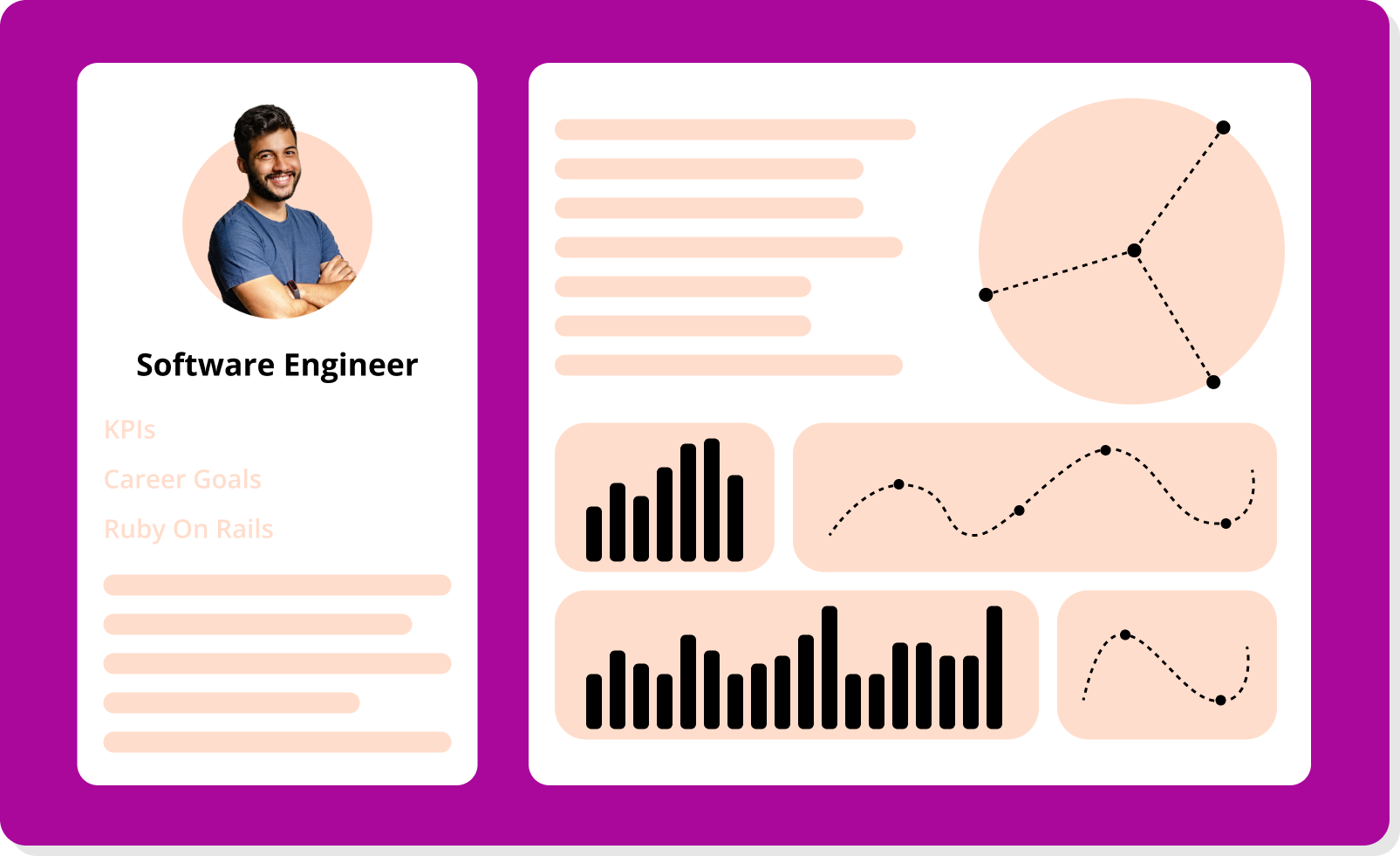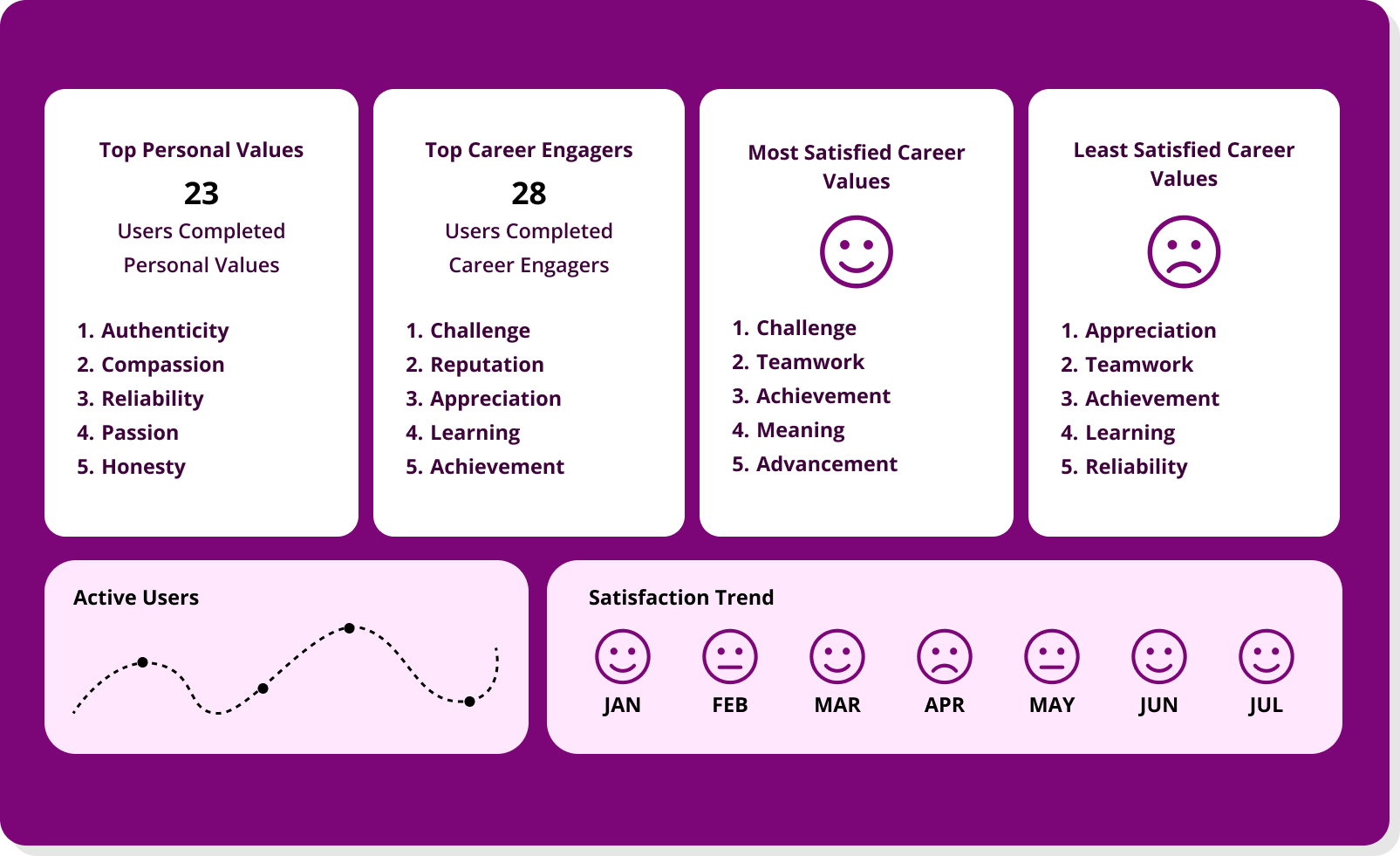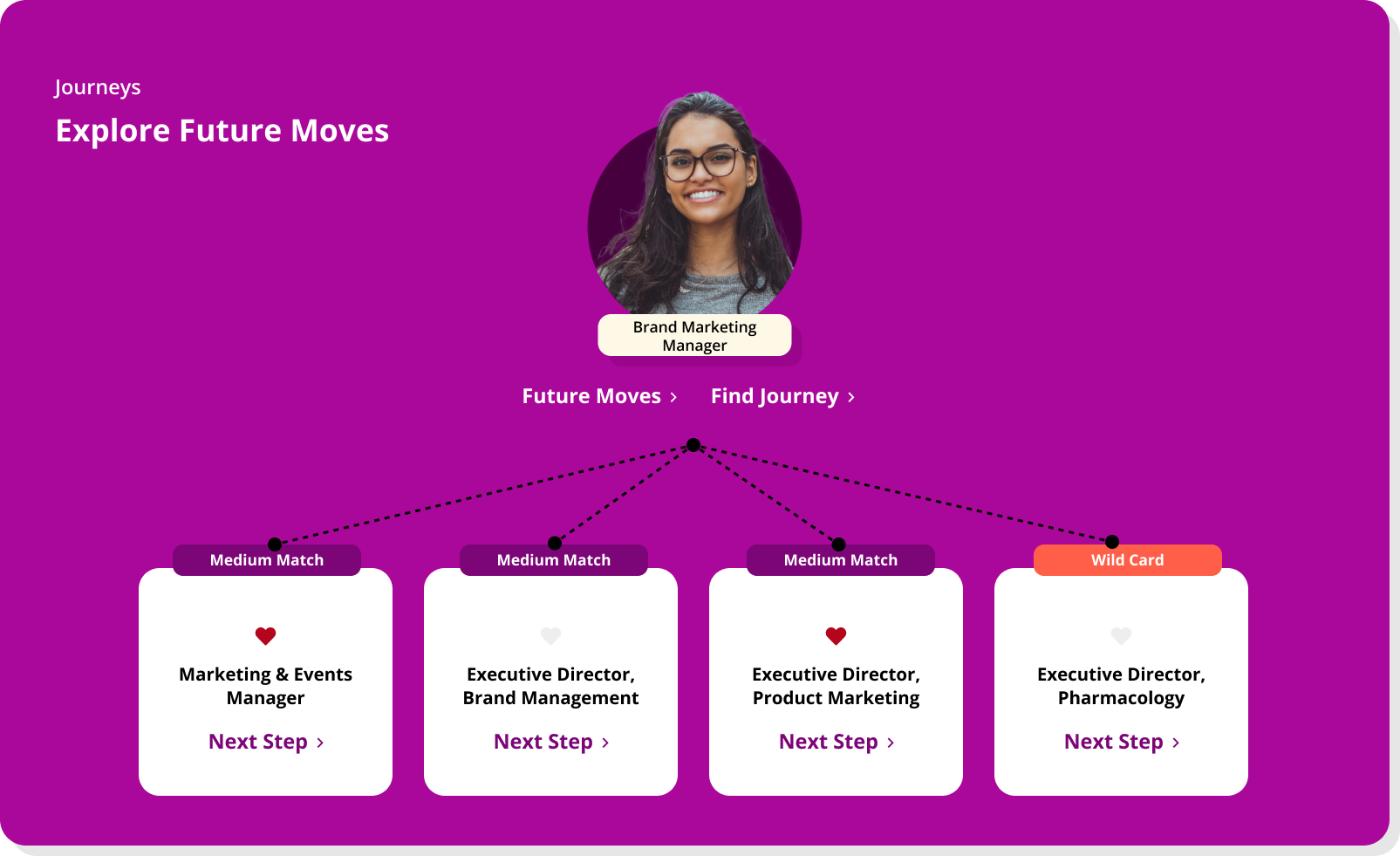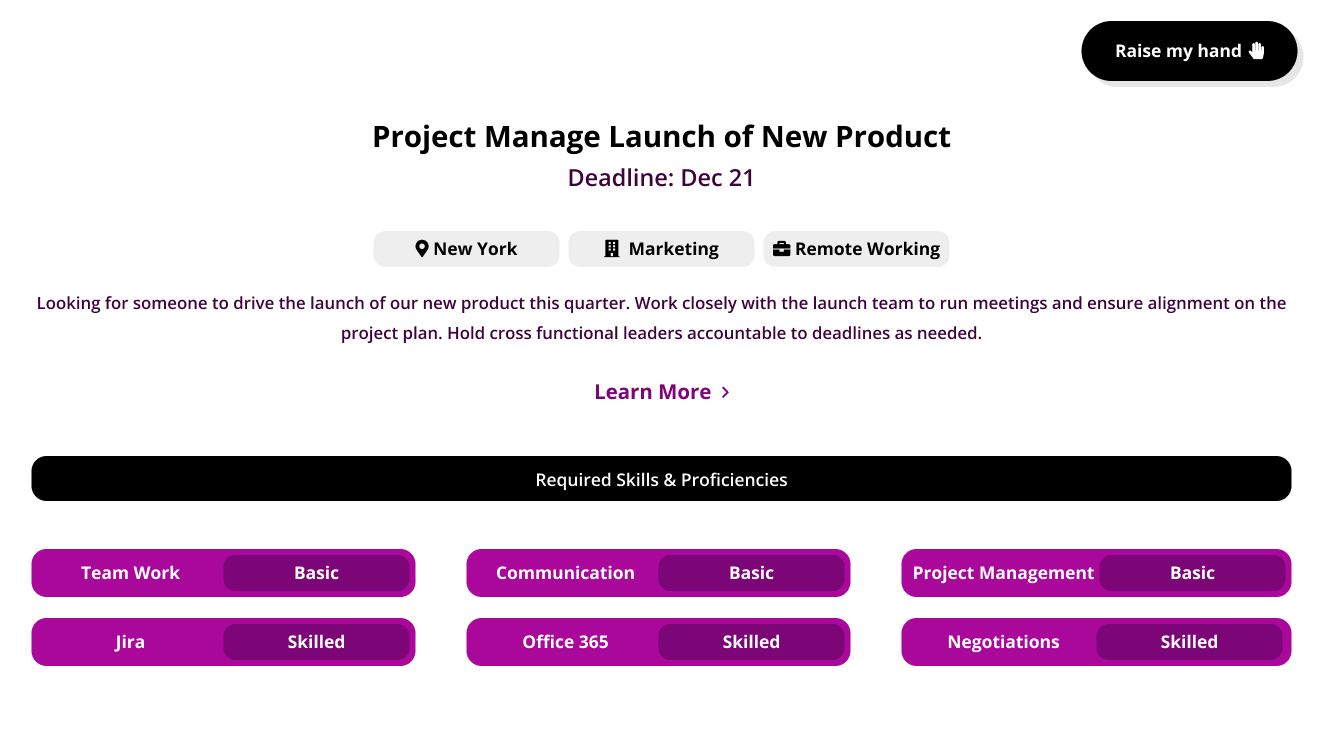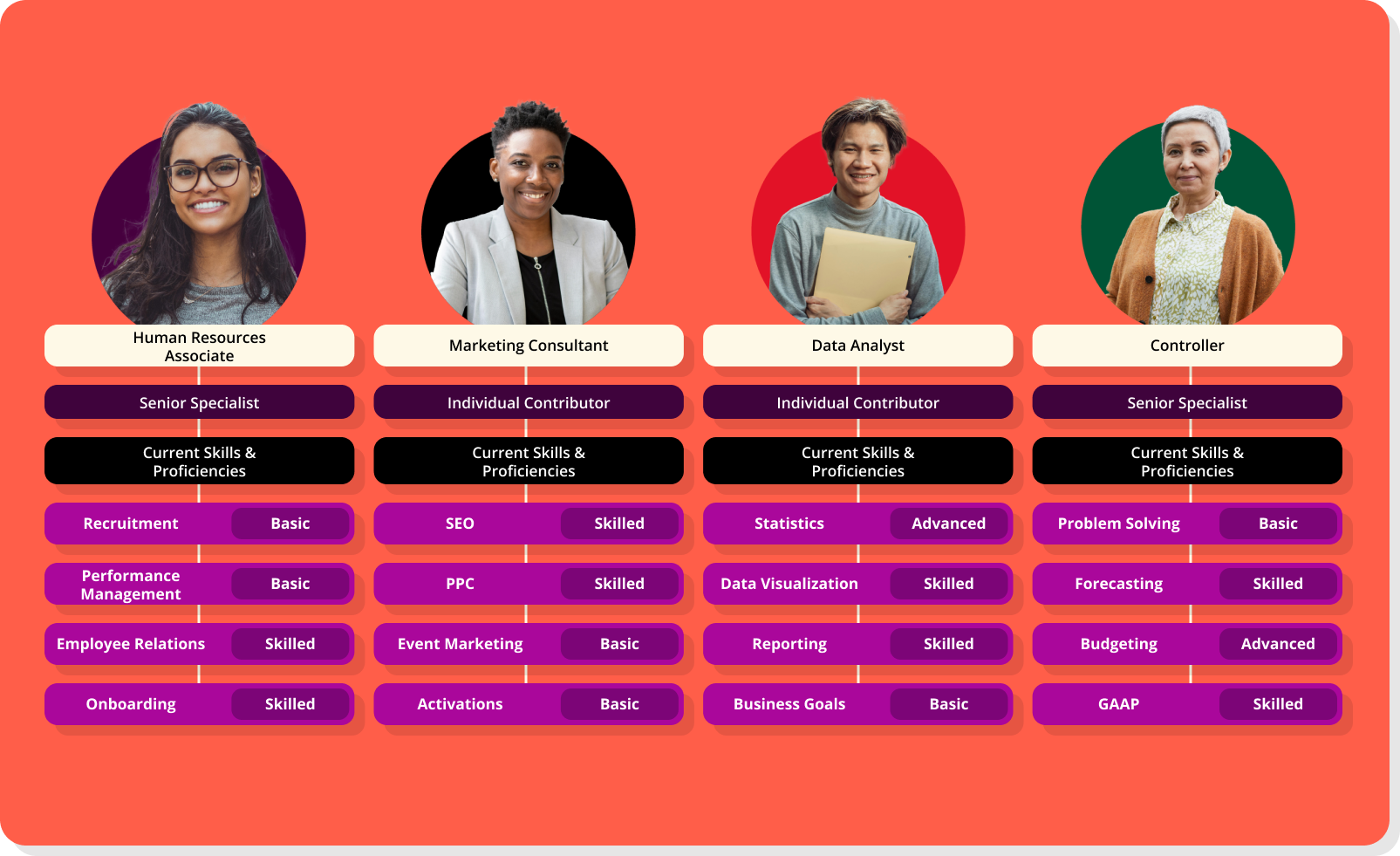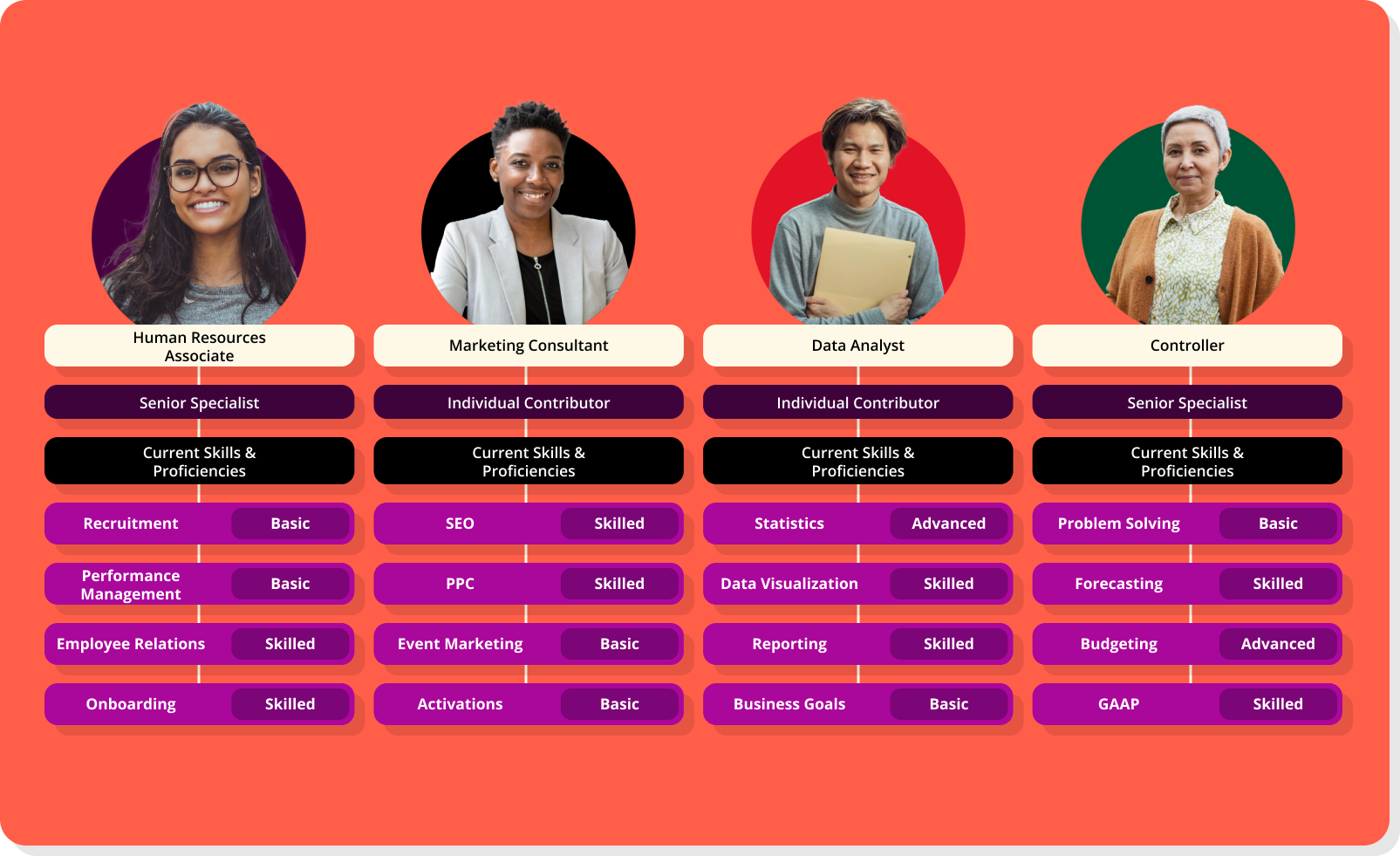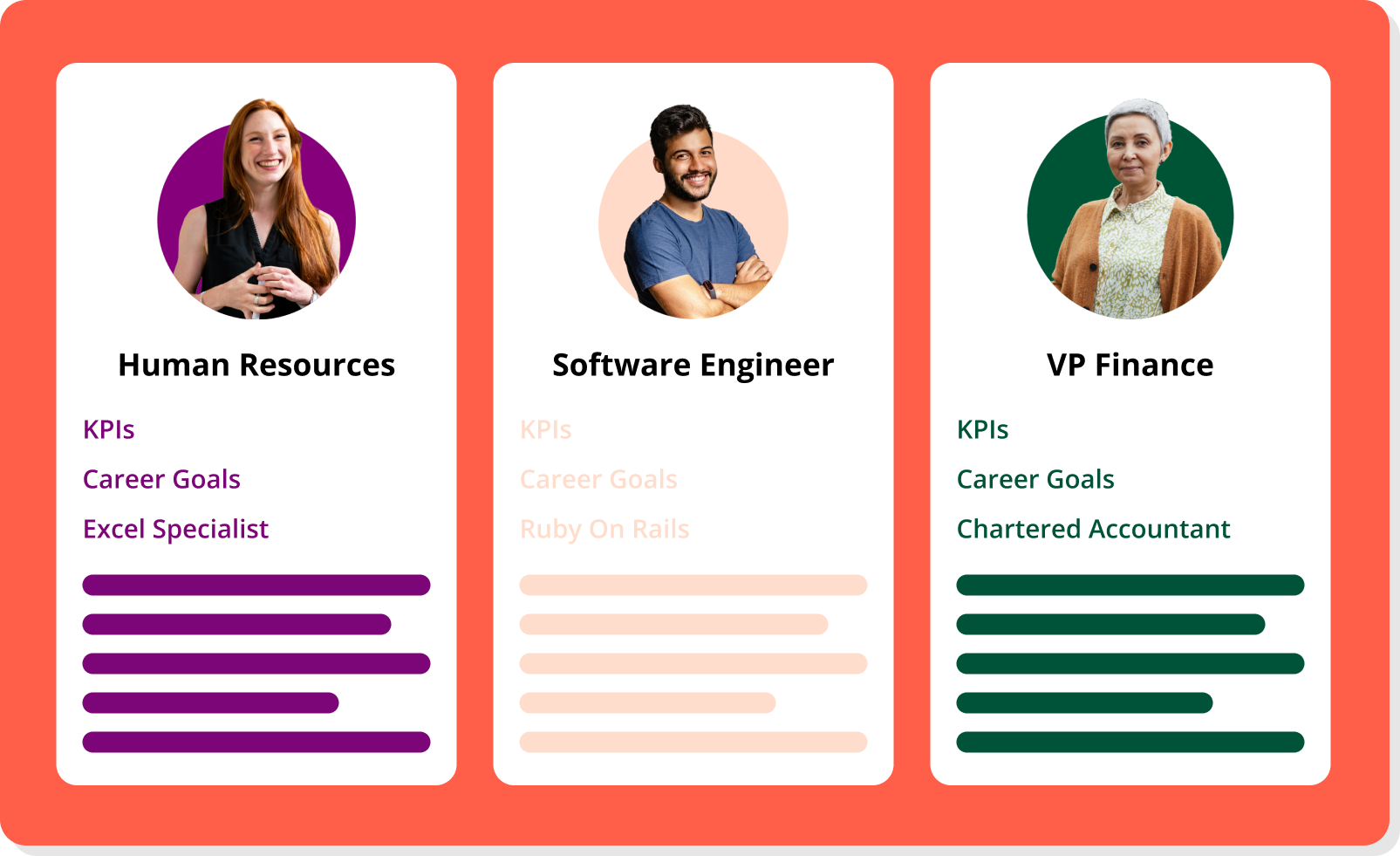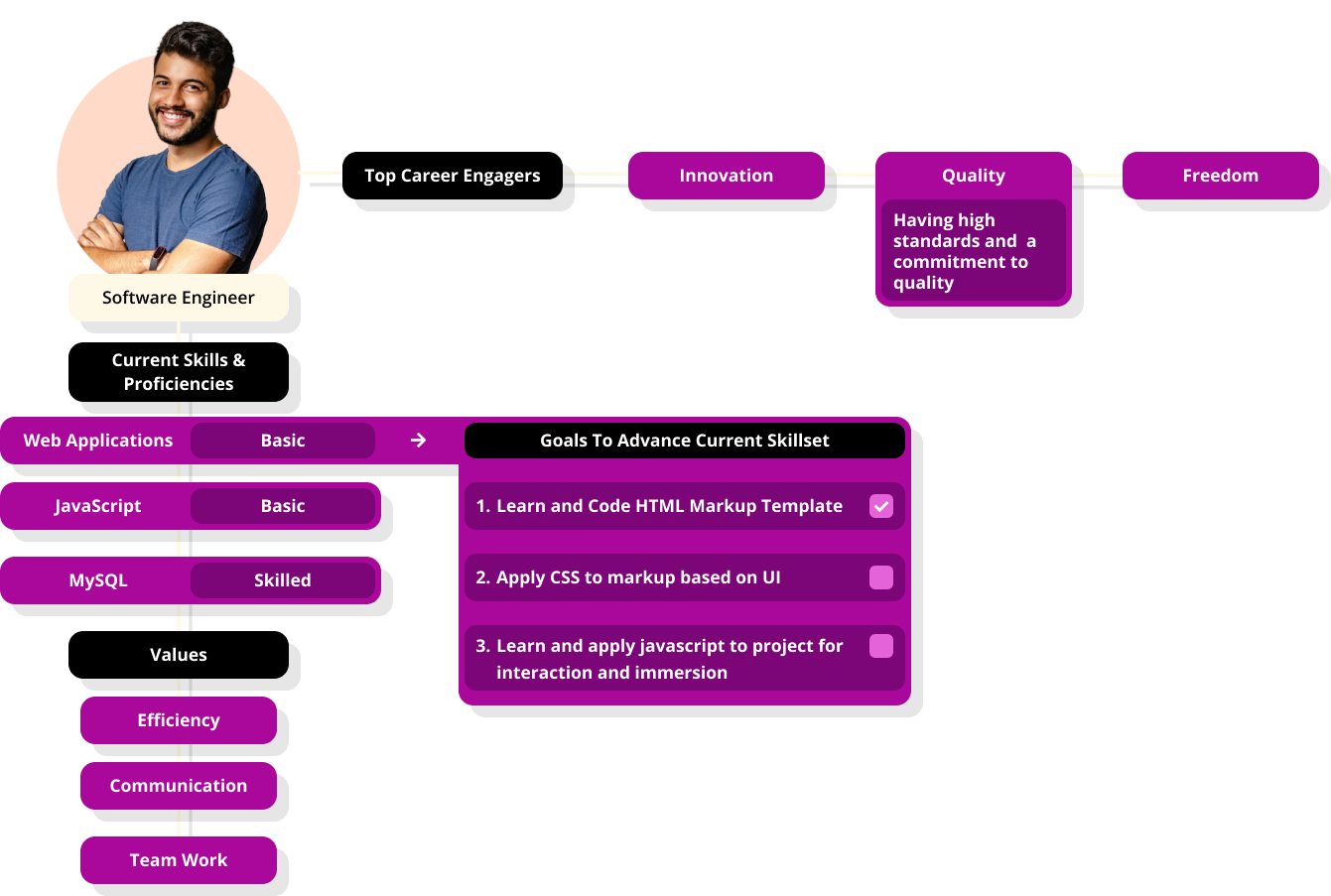Artificial intelligence (AI) can do a lot. It can surface performance trends, summarize 1:1 conversations, even generate development plans in seconds. In some organizations, it’s already being positioned as a substitute for the manager altogether—automating coaching, feedback, and career conversations under the banner of “efficiency.”
However, as great as AI can be, no algorithm can build trust. No chatbot can mentor. At least, not for now.
Yet, the question echoing across boardrooms and HR teams is whether the organization still needs managers at all, instead of “how can AI support managers?”
That’s the wrong conversation. Because as organizations accelerate toward AI-powered talent systems, the real differentiator is whether you still have leaders guiding your people through change, growth, and complexity.
This article explores what machines can do—and it makes the case for why managers aren’t going away in the age of AI. In fact, they might be more important than ever.
 The manager role is being overlooked—and that’s a mistake
The manager role is being overlooked—and that’s a mistake
As AI continues to evolve, many talent platforms are exploring ways to automate key elements of performance management and coaching. From feedback generation to development planning, these tools offer exciting opportunities to support scale, consistency, and efficiency—especially in large or distributed workforces.
However, as organizations experiment with what AI can take on, it’s worth pausing to consider what should remain deeply human.
There’s growing awareness that AI systems—especially those used to guide people decisions—need to be explainable, fair, and built with human oversight. Without it, organizations risk not just technical errors, but blind spots in areas where context, trust, and nuance matter most.
That’s where people leaders play a critical role.
Managers help employees navigate growth, change, and ambiguity. They build trust, mentor, and bring the context that machines can’t fully grasp (yet). Yet, in the broader conversation about AI’s potential, this leadership role is often overlooked—not because it’s unimportant, but because it’s hard to quantify.
The real opportunity isn’t in replacing managers—it’s in elevating them.
When AI is used to surface insights, reduce administrative burdens, and prompt timely action, it creates more space for managers to focus on what they do best: lead people. In that model, AI is an enabler of leadership.
Why mentorship still matters in an AI world
The value of mentorship isn’t just in what is said—it’s in how it’s said, when it’s said, and who says it.
AI tools can generate development tips, suggest next steps, and even draft career guidance. If you use AI to draft these messages, tools like Humanize AI can help ensure the language still sounds clear, human, and trust-building. However, mentorship is more than instruction. It’s about context, trust, and timing. It’s the gut check before a career move. The conversation after a difficult review. The encouragement when potential outpaces confidence.
These moments don’t follow a script. They’re relational and they matter.
As organizations build more intelligent systems, it’s essential to keep people in the loop—especially when the goal is to support growth. AI can highlight patterns, summarize feedback, or suggest skills. But it’s the manager—the human—who helps an employee make sense of it all and decide what to do next.
Mentorship, in this way, becomes a form of ethical leadership. It safeguards psychological safety and ensures that people aren’t just processed by systems, but supported by real relationships.
Why human-machine teaming might be the future of people leadership
Used responsibly, AI can be a powerful ally in talent development. However, when it’s deployed without oversight, transparency, or intentional design, it can introduce more complexity than clarity.
We’re already seeing warning signs across industries:
- Hiring algorithms challenged for bias
- Opaque decision systems prompting regulatory scrutiny
- Instances of AI-generated outputs that create confusion or mistrust among employees
What’s often missing in these cases is human accountability.
This is where human-machine teaming comes into play. AI is exceptionally good at surfacing insights, spotting patterns, and providing timely nudges. However, it’s people—especially managers—who bring the judgment, context, and empathy needed to turn those signals into meaningful action.
For example:
- If AI identifies a talent as “ready for promotion,” a manager is still the one who understands team dynamics, timing, and individual motivation.
- If a platform suggests a career path, a manager can help an employee weigh the tradeoffs, build confidence, and shape a plan based on real-life goals—not just recommended steps.
When transparency and human oversight are built into every layer, trust follows—and with it, better adoption, stronger outcomes, and a more resilient talent strategy.
How Fuel50 keeps managers at the center of people growth in the age of AI
Fuel50 platform is designed not to replace managers—but to elevate them. We give managers the tools to lead better conversations, support smarter development, and build trust in a way no machine can replicate. Here’s how we do it:
Actionable insights that fuel better conversations
One of the biggest blockers to effective leadership is a lack of visibility—into employee skills, aspirations, potential, and engagement. Fuel50 solves this with real-time talent intelligence delivered directly to the people who need it most.
That equips managers to gain:
- A clear view of their team’s current and emerging skills
- Insights into each employee’s career goals, engagement trends, and mobility readiness
- Early signals on retention risks or underutilized potential
This is the type of structured, role-relevant intelligence that makes development conversations sharper, faster, and more impactful. Instead of relying on gut feel or last-minute prep, managers can come to 1:1s with meaningful insight—and turn those moments into growth catalysts.
Structured career paths that managers can bring to life
Career growth often fails not because of lack of ambition—but because of lack of clarity. Employees don’t know what’s possible, managers don’t always know what to recommend, and both sides end up stuck in reactive, vague development cycles.
Fuel50 changes that dynamic by making career paths visible, navigable, and aligned to real skill data. Our Career Journeys and Talent Marketplace show:
- The roles and opportunities available across the business
- The skills and experiences required to get there
- Personalized, skills-based matches to gigs, mentors, or learning resources
For managers, this means they’re no longer guessing. They can guide employees toward relevant next steps, identify stretch assignments that support future goals, and align mobility with both team needs and individual aspirations. It transforms managers from “career bottlenecks” into mobility accelerators.
AI that surfaces insights—not one that replaces judgment
There’s a growing concern in the market about AI making decisions behind closed doors—recommending talent moves, writing development plans, and nudging action with no transparency. At Fuel50, we’ve taken a different path.
Our AI is designed to augment, not automate, people decisions.
We use a hybrid AI architecture:
- Generative tools power creative features like skill suggestions and content personalization
- Deterministic algorithms power critical career decisions like succession matching and role recommendations
These models are transparent by design, explainable under audit, and grounded in expert-curated data—not just user behavior. I/O psychologists are embedded throughout our development lifecycle to ensure outputs are accurate, fair, and developmentally appropriate.
The result: managers can trust the insights Fuel50 provides, but they remain the decision-makers—always.
Enabling strategic leadership, not just task management
Most managers are stuck in the weeds—approving requests, checking boxes, reacting to problems. Rarely do they get the time, tools, or information to think strategically about their team’s growth. Fuel50 flips that equation.
By automating the admin and surfacing the signal, our platform lets managers:
- Spot high-potential talent before it becomes a flight risk
- See succession readiness in real time
- Understand which skills are developing—and which need attention
- Identify hidden expertise that could unlock internal mobility
This moves people leadership out of reactive mode and into proactive stewardship. Instead of responding to turnover, managers can prevent it. Instead of guessing at development plans, they can lead them. Instead of managing, they can grow.
We give managers the clarity, structure, and support they need to lead with purpose. We handle the complexity behind the scenes so they can focus on what really matters: unlocking potential, building trust, and guiding people through growth.



